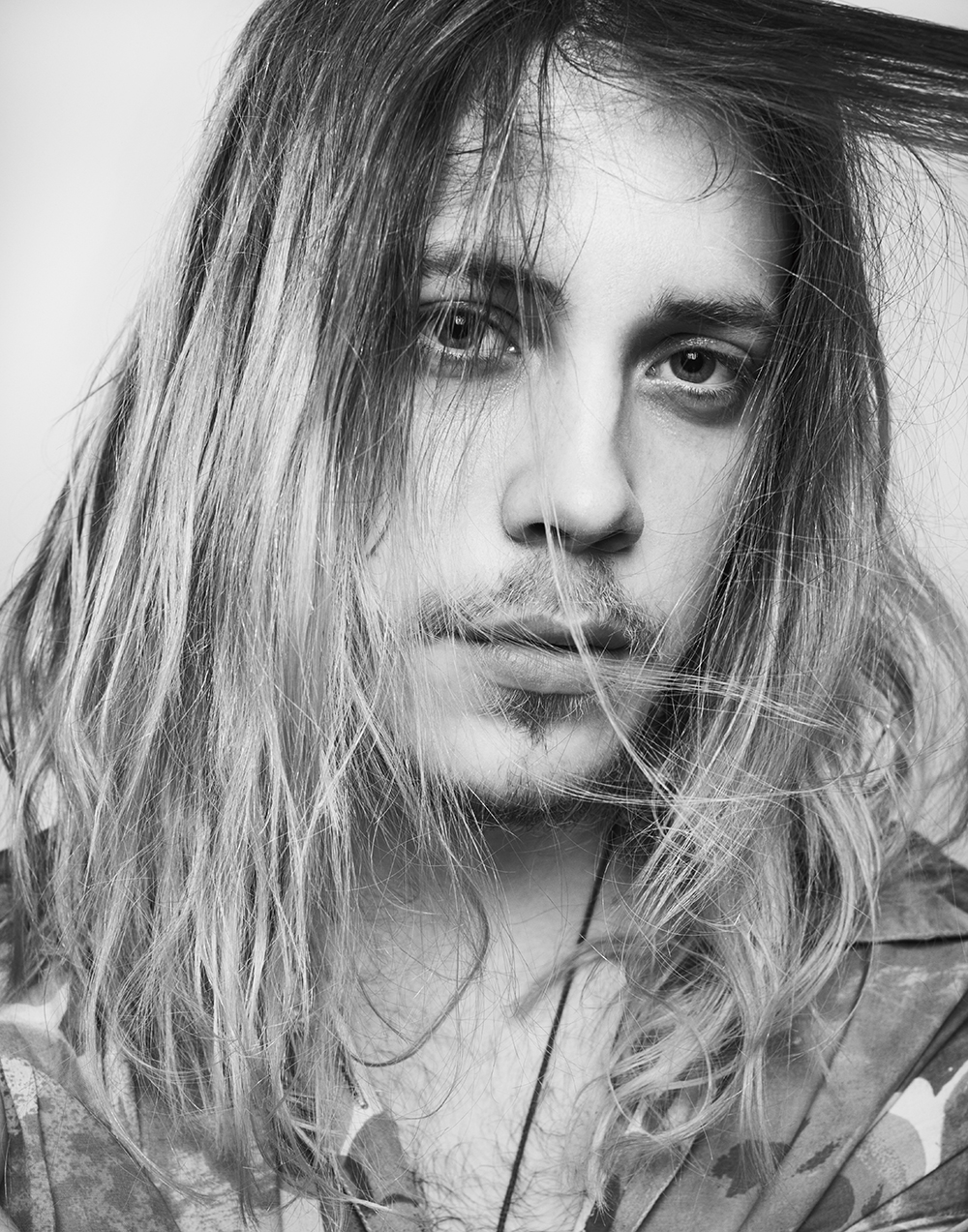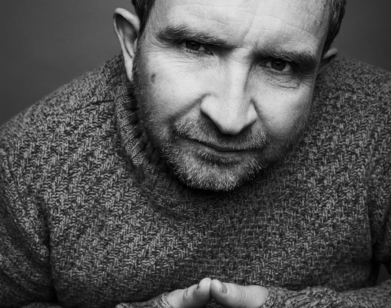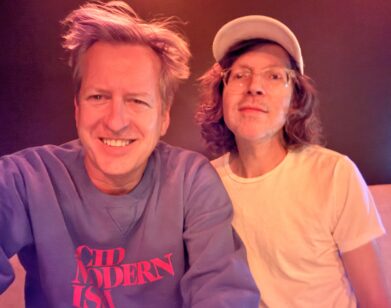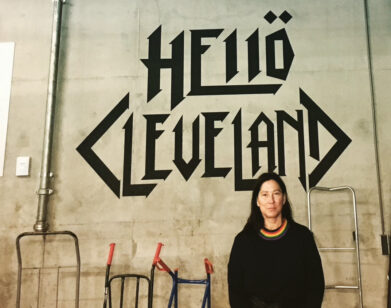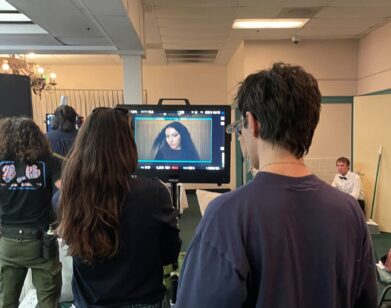Singer Isaac Gracie uses vulnerability to craft mood music
Isaac Gracie’s raw, emotive tones are starkly reminiscent of those forlorn and pain-tinged moments when love just dies. Only 22 years old, the Ealing raised singer-songwriter is already dipping into a well of emotions that belies his life experience.
Comparable sound-wise to Jeff Buckley (Gracie’s hero) and looks-wise to a young Kurt Cobain, the timeless sense of quality and torture Issac conjures on record are moving and incredibly powerful. He reimagines the deepest hurt and infatuation in one sung word. Poetic, insightful and intelligent, Gracie’s lyrics tell stories of his true life losses—from his father and stepfathers he watched leave to lovers he rejected.
Despite his brave transparency and fragility, vulnerability molds the contents of his songs and live performances. Devoid of ego and only defensive when discussing his own successes, Isaac struggles to watch himself back on camera and battles anxiety daily. He speaks of this openly, to help others cope and not feel equally alone.
Isaac Gracie is entrancingly beautiful to behold. Watching him on stage, lost in the introspective world his music creates, entire crowds are silenced. Gracie addresses the fans shyly and yet affects those whom he performs to profoundly. His kindness and gentleness are tangible throughout in his movements and in his words, present in his gaze.
Selling out European tours within moments of tickets going on sale, securing Annie Macs track of the week and now releasing his self-titled debut album this April, much has changed for the long haired creative since his first BBC introducing video was released two years ago.
MILLY MCMAHON: When you reflect on the artist you were when you first started out to where you are now, what has changed?
ISAAC GRACIE: Massive changes. Back then, I was pretty shocked by everything that was happening and l found it all really difficult to comprehend and work though. Everything was pretty crazy, l was trying to find my feet but the last two years I’ve been grounded, learning and understanding, putting everything in place on a mental and emotional level. I’ve been working through a few things and coming back to myself a little bit.
MCMAHON: Do you feel robust in the fragility you capture on record, or has working in the music industry altered your relationship with displaying vulnerability so honesty?
GRACIE: It feels difficult to say because I was such a different person back when I started out, in many respects. Back then I was romanticizing the past in an emotional way. I think I am probably still doing that now. Then the robustness of my mental health and emotional health was secondary to the craziness and the franticness, the uniqueness of the time and how that affected my emotions so I was more emotional than I was robust. Over the last few years, I have tried to level that out, I’m always trying to be in touch with my feelings and I want to be present; it’s important to be present, but it’s also difficult to be that way when you have to be.
MCMAHON: You speak so fondly of your bedroom, where you conceived of your songs with a glass of red wine. Does being on tour change the way you relate to the songs you have written?
GRACIE: It’s hard to say. I love to get out of the bedroom and be outside and that’s inspiring to me. I’ve been in that bedroom for 13 years and I’ve gone through different shapes and versions of myself and my work but it is the same bedroom. Any opportunity I have to get on the road and play the music with my band is the time when I like to gather new thoughts and bring those back to the bedroom. I’m never far from the bedroom, so far as that’s my home and I still write my songs there and I still watch movies and sleep. It’s an anchor point as opposed to the only point.
MCMAHON: A lot of people compared “The Death of You and I” to a Quentin Tarantino soundtrack and l wondered if that had given rise to anyone approaching you to write a film score?
GRACIE: That would be my dream somewhere down the line. My ideal goal is to create a film score or soundtrack. Movies are so creative with their soundtracks and good music has always been present in films.
My ideal would be to create something like Johnny Greenwood, not that I am an iota of the musician he is. Of course, I would love to write a song and for it to be in a movie but what I really want is to create a composition and flesh that out, that’s exciting to me: A sonic landscape using instruments and techniques which l would regularly get to explore in my own music.
I worked with Guy Garvey for a movie and I loved that process. I think working in film soundtracks is liberating, you get to put on a mask and explore, but that’s also a bit of a challenge because I have never had that experience so far.
MCMAHON: Are there any films which are heavily referenced in your own music?
GRACIE: I watch loads of films, that’s the main thing I do outside of music and so I feel like I gain inspiration subconsciously from lots of different films. I am drawn to Gus Van Sant movies and My Own Private Idaho. Films truly inspire me. Gus loves music.
MCMAHON: How does it feel being in front of the camera?
GRACIE: All of that is hard. I never enjoy shoots per se but now I’m getting a little bit more comfortable. Growing up I would never be the person in photos at parties or at school, even with family. I was always avoiding that. Definitely coming into the industry and having to see my face, that was the most jarring thing. You witness your face for the first time and you are left shocked and in horror.
The idea of feeling like you look a certain way, I found it tricky to get my head round. Now, touch wood, I’ve moved through that period of discombobulation with my own appearance, so the whole practice of being in that space is a bit easier. If you could see the emails I sent after I shot my first few music videos. My response was pure horror.
MCMAHON: I guess that’s because you’re looking for the parts of yourself that you don’t like, parts that you have learned to not like. Other people will look at your face to appreciate it and not feel critical of you.
GRACIE: It’s so true, I never look at anyone’s face with the level of automatic discontentment that I look at mine. Who knows, man.
MCMAHON: How has the affirmation and love for the music affected your feelings of anxiety and low self-esteem that you express through the music?
GRACIE: I don’t know the answer to that question concretely. I know that my anxieties have subsided for the time being. But they got really, truly awful a year or two ago. I hope that the mental and emotional legwork that it took to understand and comprehend being in public eye has endured. If it would become more present again, that awareness or heightened anxiety could be dealt with. But then it’s difficult because I live in semi-constant state of fear of not fully understanding what triggers anxiety. I can’t say confidently that it is not still present in my life.
Any level of success that I have achieved up until this point, which is still very minimal on a world level, is minimal to the impact on my anxiety. It’s wonderful that people have been appreciating the music but I can’t set my levels of self-assurance there, I need to remain level-headed and see everything as a blessing and a step towards what I want from my life.
MCMAHON: Your close relationship with your mum is central to the man you’ve become. Have you been able to maintain that intimate bond with the increasing pressures of touring and working?
GRACIE: Yeah, absolutely. It’s difficult because I am constantly consumed by music in some way, shape or form and I know that I have become quite solo-minded in that respect, so that’s not necessarily an amiable or respectful quality to have. We get on now better now than ever, we still have our home together. It’s been a tough couple of years with everything that has happened in my life and her life, to be where we are now, to still be going on, is nice for us.
ISAAC GRACIE (VIRGIN EMI) WILL BE AVAILABLE ON APRIL 13, 2018.

